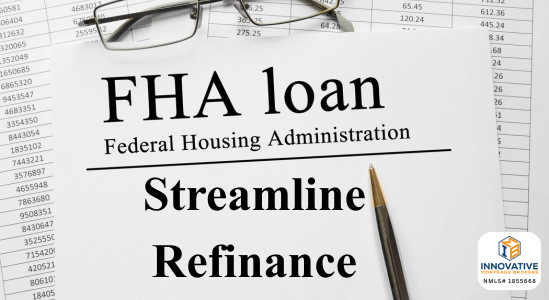What 90% LTV cashout means, who qualifies, and how to structure it Tapping your equity…
Understanding Home Equity and How to Use It

Your home is an investment, but it might not feel that way when you write your monthly mortgage payment.
However, every time you make a payment, you gain more equity in your home. This means you pay your mortgage balance down and own a larger portion of the home. So while it may take 15 – 30 years to own your home entirely, building home equity has its benefits too.
Home Equity Defined
Home equity is the difference in your home’s value and outstanding mortgage balance. For example, if your home is worth $300,000 and your mortgage balance is $200,000, you have $100,000 in equity.
Of course, the equity stays tied up in the home while you own it, but there are ways to access it if you find better uses for it.
Does Home Equity Change?
Your home’s equity can change monthly depending on home values and mortgage payment habits.
Each time you make a mortgage payment, you pay a portion of the principal down, which increases your home equity. In other words, you decrease how much you owe and increase how much of the home you own.
Your home equity can also change as your home value changes. It might not change monthly, but it can change often. When home values increase, your home equity increases, and vice versa.
Building Home Equity
Luckily, there are many ways to build home equity faster than simply making monthly minimum mortgage payments.
Here’s how.
Make Larger Payments
You have a minimum mortgage payment you must make each month. It’s required to keep your mortgage in good standing and not negatively affect your credit score.
However, most lenders allow you to make extra mortgage payments if you have the funds. This means you can pay more towards the loan’s principal, paying the loan off faster and increasing your home equity quicker.
Here are some ways to pay your mortgage faster:
- Make an extra payment annually
- Make bi-weekly payments (depending on lender, may or may not help)
- Pay an extra amount each month toward the principal, for example, $100 monthly
Shorten your Loan Term
If you can afford a larger loan payment, consider refinancing your loan for a shorter term. For example, if you currently have a 30-year loan, but refinance into a 15-year term, you pay the loan off in half the time.
Not only will you pay much less interest on the loan by cutting the term in half, but a larger amount of your payment will pay down the principal, increasing your equity faster.
Consider Home Improvements
If you have room in your budget, consider improving your home to increase its value. Don’t assume every renovation you make will increase the home’s value, though. Instead, work with a reputable real estate agent or home appraiser to determine the best renovations for the greatest return on your investment.
Make a Large Down Payment
When you buy your home, you’ll have a minimum down payment required, but that doesn’t mean you can’t invest more in the home.
The more money you deposit in the home when you buy it, the more equity you’ll have. This starts your home-ownership off on the right foot, helping you get a larger return on your investment.
Ways to Use Home Equity
When you earn equity in your home, the next step is to determine how to use it. Of course, there’s no right or wrong way, but here are some common uses.
- Pay for retirement
- Renovate your home
- Use as a down payment on a vacation or investment home
- Consolidate debt
- Make a large purchase
- Purchase a larger home
How to Access your Home Equity
When you’ve decided what you want to do with your home equity, the next step is determining how to access it. If you want to keep your home, there are several ways to access the funds.
Cash-Out Refinance
A cash-out refinance refinances your first mortgage. You borrow an amount larger than your current principal balance and collect the difference in cash.
Most borrowers can access up to 80% of a home’s value in a cash-out refinance. For example, if your home is worth $300,000 and your mortgage balance is $200,000, you might be able to withdraw around $40,000 of the home equity ($300,000 x 0.8 – $200,000 = $40,000).
Keep in mind you’ll lose your interest rate on your first mortgage, replacing it with the terms of the new mortgage, so make sure it makes sense.
Home Equity Loan
A home equity loan is a second loan on the property. You leave your first mortgage untouched and instead tap into the home’s equity with a home equity loan.
Home equity loans are fixed-rate loans that provide the loan amount in one lump sum. Using our example above, you could borrow up to $40,000 in a home equity loan. You’d make principal and interest payments on the loan from the start and have a fixed payment.
Home Equity Line of Credit
The home equity line of credit, or a HELOC, is a second mortgage on the property. However, instead of receiving the funds in one lump sum, you receive them as a line of credit. You can withdraw funds using the provided debit card or checkbook.
You only pay interest on the funds you withdraw, and you can use, payback, and reuse the funds for the first ten years. After the draw period ends (10 years), you’ll enter the repayment period. During this time, you must pay principal and interest to repay the loan over the next 20 years.
The only downside of the HELOC is the interest rate is variable, so your payment may change.
Final Thoughts
Home equity is your investment in your home. You can use it however you want, or even leave it in the home. Using your home equity to make money grow even faster can give you a greater return on your investment.
Home equity can be a powerful tool for making financial decisions and getting into a better financial position, but knowing how to best utilize it can be difficult. That’s where we at Innovative Mortgage Brokers can help. At Innovative Mortgage Brokers, we help clients in Pennsylvania and Florida by providing reliable advice and guidance on taking advantage of the equity in a home for loan refinancing, investing, and debt consolidation. Our team is dedicated to helping customers improve their financial situations.




